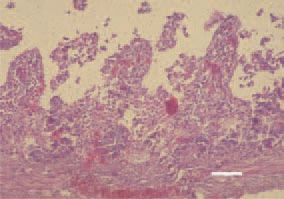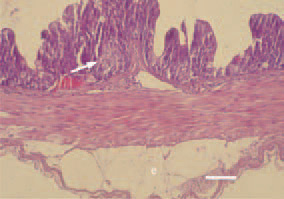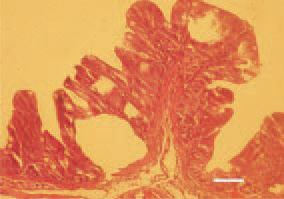|
Histopathology and Cytology of
Poultry Diseases By Ivan Dinev, DVM, PhD
|
POULT ENTERITIS MORTALITY SYNDROME

Fig. 1. Poult enteritis mortality syndrome (PEMS) is an infective, transmissible multifactorial disease, affecting turkey poults at the age of 1–4 weeks. It is characterized with diarrhoea, dehydratation and increased mortality. Histologically, target cells are those of intestinal mucous coat epithelium. An acute enterotyphlitis with villous atrophy is present. H/E, Bar = 50 µm.

Fig. 2. Epithelial hyperplasia of glandular crypts (arrow) and subserous oedema (e). H/E, Bar = 35 µm.

Fig. 3. The intestinal lumen is filled with watery fluid and gas. Sometimes, glandular crypts are transformed into cystic cavities. H/E, Bar = 30 µm.
This book is protected by the copyright law.
The reproduction, imitation or distribution of the book in whole or in part, in any format (electronic, photocopies etc.) without the prior consent, in writing, of copyright holders is strictly prohibited.






